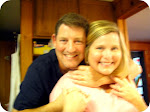My eighth-grade English teacher st Christian Heritage Academy put the word genocide on a vocabulary list. I hated it immediately.
I did not understand the point of the word genocide then. I resent and revile it now. The word is tidy and efficient. It holds no true emotion. It is impersonal when it needs to be intimate, cool and sterile when it needs to be gruesome. The word is hollow, true, but disingenuous, a performance, the worst kind of lie.
It cannot do justice - it is not meant to do justice - to the thing it describes.
The word genocide cannot tell you, cannot make you feel, the way I felt in Rwanda. The way I felt in Burundi. The way I wished to be invisible because I knew someone wanted me dead at a point in my life when I did not yet understand what death was.
~ The Girl Who Smiled Beads
Clemantine Wamariya
This passage from Wamariya's story of war and what comes after got me thinking about words straight away. I kept thinking about the way language defines and constructs as I read her narrative. Obviously, her experience is beyond words. Words fall short. They seek to impart order to chaos and to explain the unexplainable.
I finished this memoir the other day. It is a powerful recounting of survival and also brokenness. I think every young woman should read this story. I'm passing it onto my daughter.


No comments:
Post a Comment